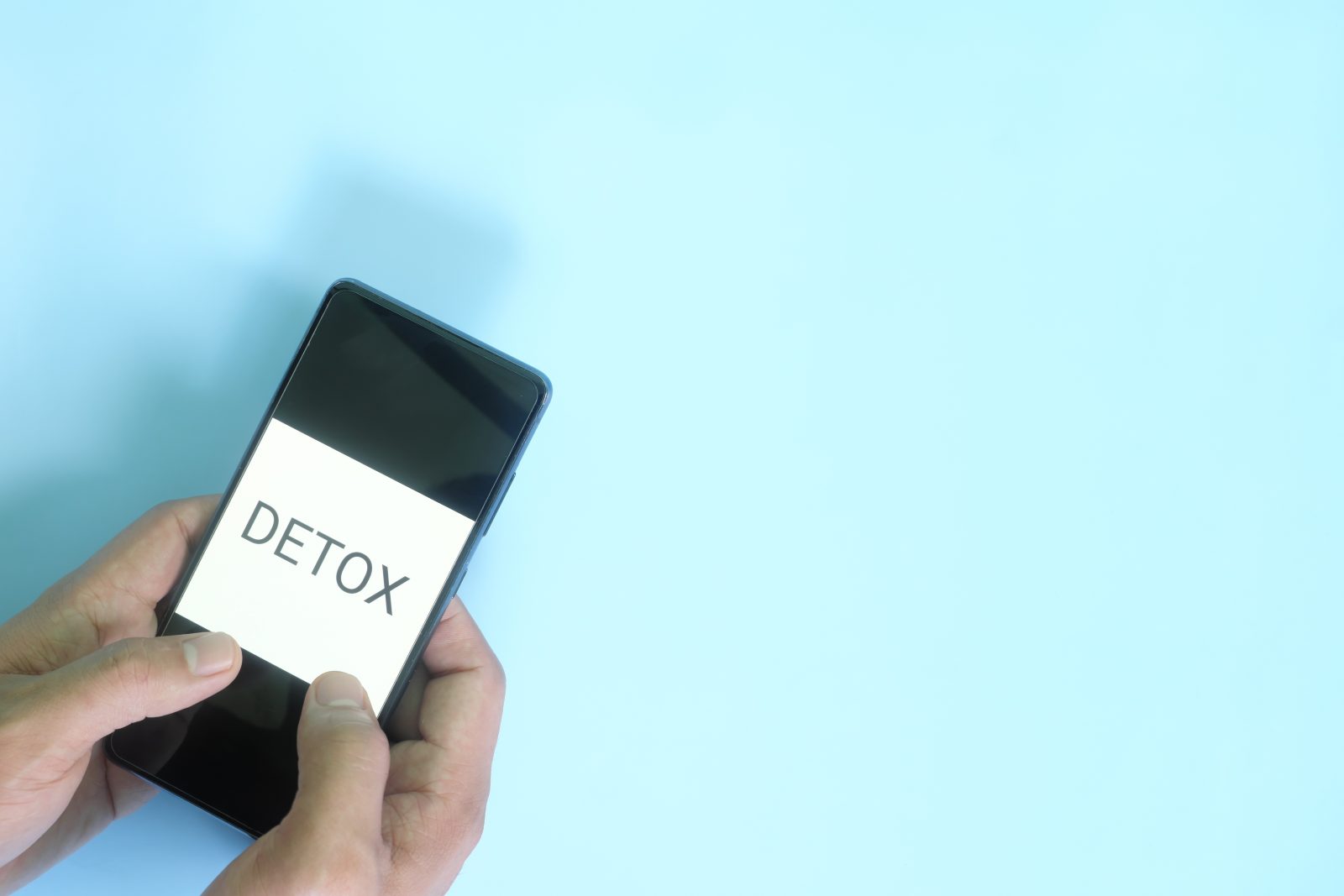It’s challenging to envision mental health in a world without social media, considering how intertwined our lives have become with online platforms. Before the rise of social media, people relied on face-to-face interactions, phone calls, and other offline means to connect and communicate.
While social media offers numerous benefits in terms of staying connected, it also comes with downsides such as information overload, comparison, and the pressure to present a curated version of our lives.
Striking a balance between the benefits and drawbacks of social media can be essential for maintaining mental well-being.
Let’s talk about the benefits of taking a social media break and 29 things you can do instead of mindlessly scrolling.
5 Studies that Show How Social Media Negatively Impacts Mental Health
Research on the effects of social media on mental health consistently suggests that excessive use of these platforms can have detrimental effects ad, in addition, too much social media can even ruin our friendships in real life.
Here are some key findings from various studies:
- A 2015 study revealed that children in the U.K. who spent more than three hours per day on social networking sites were twice as likely to report high or very high scores for mental ill-health.
- A small 2018 study found a direct correlation between decreased social media usage and improvements in depression and loneliness.
- A 2021 survey conducted by ExpressVPN indicated that a majority of Americans reported negative impacts of social media on their happiness, self-image, anxiety, loneliness, and depression.
- A cross-national online survey in 2022 across the United States, U.K., Australia, and Norway found that increased daily time spent on social media was associated with poorer mental health, particularly when used for entertainment or to alleviate loneliness during the pandemic.
- Conversely, a pilot study in 2021 involving university students reported positive changes in mood, reduced anxiety, and improved sleep during and after a break from social media.
Overall, these findings suggest that excessive use of social media can contribute to negative mental health outcomes such as poor self-image, anxiety, depression, loneliness, and sleep disturbances.
Making adjustments to social media usage patterns may be beneficial for promoting better mental well-being.
29 Things to Do Instead of Spending Time on Social Media
Depending on what you usually use social media for and the moments in which you prefer to scroll through your favorite social media apps, there are many fun and useful things you can do instead.
If You Use Social Media for Human Interaction
- Reach out to a friend or family member and engage in a meaningful conversation, either through a phone call or video call.
- Host a gathering at your place for dinner or drinks to spend quality time with loved ones.
- Bake something delicious and share it with your neighbors, taking the opportunity to chat and connect with them.
- Join a community group, whether it’s a church, nonprofit organization, or club, to engage with others in your community.
- Plan a weekend activity such as brunch, a hike, or a shopping trip with friends to strengthen your social bonds.
- Enroll in a class offered by your local Parks and Recreation Department to learn something new and meet people with similar interests.
- Volunteer your time at a local food bank or community organization to give back to your community while connecting with others.
- Experience the joy of goat yoga, a unique activity that combines yoga with the playful presence of goats, bringing smiles and connections.
If You Use Social Media as a Source of Entertainment
- Attend a live music concert or performance in your area.
- Spend a day at a local museum to appreciate art, history, or science.
- Explore your creative side at a paint-your-own pottery studio, such as Color Me Mine.
- Learn to play a musical instrument that interests you.
- Listen to engaging podcasts on topics that interest you.
- Enroll in a dance or martial arts class to learn new skills and stay active.
- Embark on a hiking adventure to explore nature and get some exercise.
- Visit an arcade to enjoy classic games like Skee-Ball and Pac-Man.
- Start a gardening project to cultivate plants and enjoy the outdoors.
- Host a game night with friends or family and enjoy playing board games together.
- Dive into a captivating book and immerse yourself in a new story or knowledge.
If You Use Social Media to Relax
- Practice yoga or meditation to relax your body and calm your thoughts.
- Put on your favorite music playlist and let the melodies soothe your mind.
- Sip on a comforting hot beverage like tea or hot chocolate to warm your soul.
- Create a cozy ambiance by lighting candles or diffusing calming essential oils.
- Dive into a captivating book that transports you to another world.
- Get creative with doodling, crafting, or any artistic endeavor that inspires you.
- Take a trip down memory lane by looking at old photos and reminiscing about fond memories.
- Take a leisurely stroll around your neighborhood or a nearby park to unwind.
- Spend quality time with your pet, playing, cuddling, or simply enjoying their company.
- Indulge your senses by baking something delicious in the kitchen.
Healthy Social Media Boundaries and Practices
Setting healthy boundaries with social media involves finding a balance that works for you without completely cutting it out of your life. Here are some practical steps you can take:
- Delete any negative direct messages, trolling, or spam. Keep your inbox free from harmful or unnecessary content.
- Unfollow accounts that have a negative impact on your mood or self-esteem. Choose to surround yourself with content that uplifts and inspires you.
- Unsave posts that encourage unhealthy comparisons or unrealistic standards. Focus on content that promotes self-acceptance and growth.
- Remove photos from your profile that trigger self-judgment or comparison with others. Your social media should reflect positivity and authenticity.
Additionally, consider setting an example for mindful and authentic posting:
- Remind your followers that you’re human, just like them, by acknowledging your flaws, insecurities, and struggles in your captions.
- Embrace the real you by skipping filters and showcasing your authentic self in your posts.
- Share moments of vulnerability and imperfection alongside the highlights. This helps foster a genuine connection with your audience.
- Normalize taking breaks from social media by sharing about your own breaks and encouraging others to do the same. Remind your followers that it’s okay to step back and prioritize their mental well-being.
- Spread positivity by leaving encouraging comments on others’ posts and supporting their journey.
Bottom Line
Social media has seamlessly integrated into our daily routines, becoming an integral part of how we communicate, share information, and connect with others. Its ubiquitous presence brings forth a myriad of advantages and disadvantages that shape our digital experiences.
Nevertheless, adopting a mindful approach to social media usage can help mitigate its negative impacts while harnessing its positive potential. Taking periodic breaks from social media, setting boundaries on usage, and prioritizing real-life connections are essential strategies for maintaining a healthy digital lifestyle.
By striking a balance between online and offline activities, we can optimize the benefits of social media for self-expression, connection, and community building while safeguarding our well-being in the digital age.
















Find Us on Socials